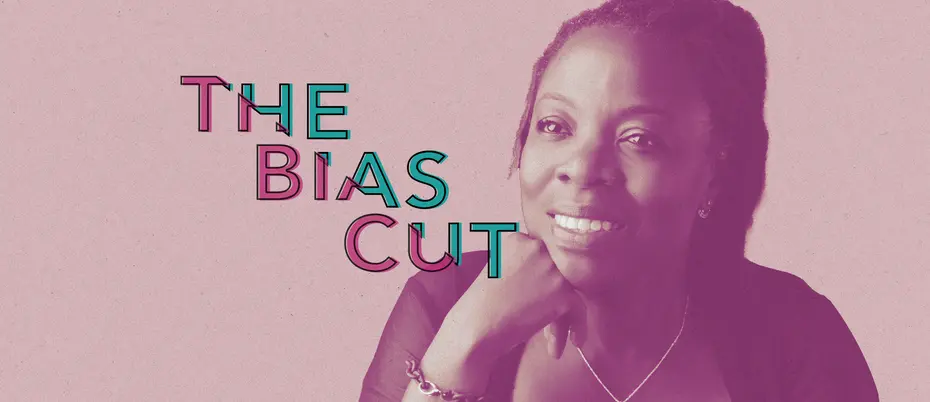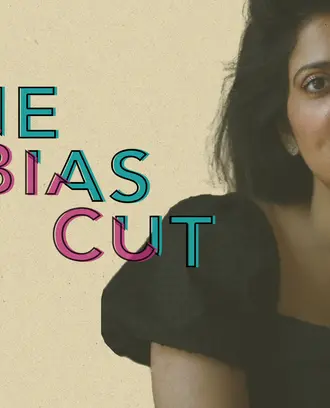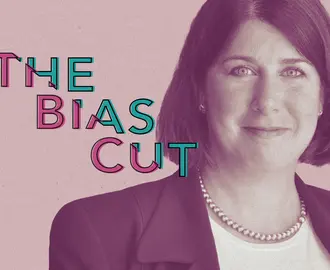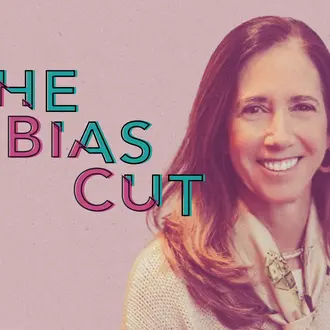The Bias Cut
Why learning to say no is the most important lesson for this creative founder
“Seek opportunities that are right for you, and knock persistently until those doors open.”
A 2022 women’s leadership study from LeanIn.org and McKinsey & Co. found that American women held 40% of corporate management positions, and women continue to fight underrepresentation when it comes to board positions and CEO roles. They also face gender bias, harassment, and opposition to their management styles.
Here’s how one alumnus of the MIT Legatum Center’s Foundry Fellowship program has pushed back on those statistics and used what she’s learned along the way to help those behind her.
Achenyo Idachaba-Obaro, 2022-23 Foundry Fellow, MIT Legatum Center for Development and Entrepreneurship. Founder of MitiMeth, a sustainable materials company based in Lagos, Nigeria.
Given what you know now, what would you tell your younger self about being a woman in your industry?
After 19 years in the U.S., 15 of which were spent in corporate America, I decided to relocate to Nigeria to develop a business case around waste recovery and utilization. Two years in, after working on a few feasibility waste management cases, I happened upon the water hyacinth — an invasive aquatic weed that can be used in agriculture, energy, and weaving and fabricating handicrafts — and I founded a creative social enterprise called MitiMeth. MitiMeth transforms waste, innovates with new plant materials, and builds artisan livelihoods.
I studied computer science but switched careers to creative manufacturing. I would say to my younger self, “Be bold, be strong, and remain steadfast in your pursuit of excellence. Seek opportunities that are right for you and knock persistently until those doors open.”
Can you give an example of a time you’ve experienced or witnessed gender bias? How did it affect you professionally? What impact did it have on your job?
The unfortunate truth is that bias is just part and parcel of the landscape, be it gender, race, ethnicity, etc. It is my reality. And because I am aware of it, I do not allow biases to bother me personally or impact my job or keep me from [focusing] on my goals. We only have control over how we perceive or react or engage with other people. We have no control over how other people behave. I would rather focus my energy on doing my job well.
What is the most difficult lesson you’ve learned in your professional life? In what unexpected ways did you grow from it?
Business is a healthy balance of heart and head. With the kind of work I do, and my personality, it sometimes gets more skewed toward heart. The most difficult lesson I learned is to say “no” or “not now.” I often take on more than I should by trying to accommodate everyone. What I have learned from the process is, don’t try to over-accommodate when it is not convenient for you; it only leads to making poor judgment calls, missing the obvious, plenty of stress, and mental exhaustion.
My wake-up call was when I made a poor judgment call and signed a service agreement under pressure because the other party had a tight deadline. Worse still, I should have sent it to legal to review prior to signing, but I didn’t. It backfired because I didn’t thoroughly read through the agreement clauses. The other party chose to terminate the agreement and invoked a clause that left my organization with the short end of the stick!
What’s one specific way you tend to your well-being, and how do you encourage well-being among your staff?
I’ve recently started walking for exercise and managing my diet. I have encouraged well-being by enrolling my staff in health care plans. Sounds like a no-brainer in the developed world, but it isn’t that simple for SMEs [small and medium-sized enterprises] to do in my part of the world. It is very common for people to self-diagnose and self-medicate. With health insurance, my staff can get proper care when ill.
What’s one skill or behavior women can adopt to make their career path more successful and more manageable?
Negotiation. It’s about giving and taking and negotiating a deal that works for you and works for the organization.
If you could snap your fingers and change one thing about workplaces, societal norms, or public policies that would most benefit women in the workforce, what would it be?
Most women want to keep their jobs through different life stages: about to be married, newly married, about to have kids, having more kids. And business owners all want committed and hardworking staff that do not feel they have to sacrifice one for the other.
One thing I would change is having policies that drive support programs for SMEs, or insurance policies to provide compensation benefits to staff who go on medical or maternal leave or those who have day care needs.




